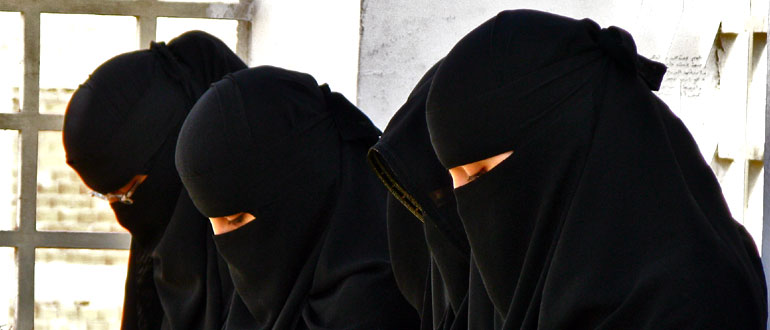India is the land of multiple diversities of plurality which actually defines what India is . Plotting against to eliminate such fundamental mole of India by hatching a political agenda can be catastrophic.
By Aga Syed Amin:
India is the land of multiple diversities of plurality which actually defines what India is . Plotting against to eliminate such fundamental mole of India by hatching a political agenda can be catastrophic.
Invoking the xenophobic narratives to rake up the communal divide has been a familiar electoral strategy of the political sovereignty for years.
Time and again the stage has been thrown open to start the play again on the hijab controversy this appears to be an entirely cooked-up row; a deliberate attempt to stoke the communal flames.
There is no ambiguity in the constitutional provisions providing religious freedom for all. The decision of a college in Karnataka’s Udipi to ban entry for Muslim girls wearing hijab — headscarf — raises the question of whether educational institutions can impose a dress code that could interfere with the rights of students.
The controversy has turned into a full-blown communal issue, thanks to the politically-motivated protests by the saffron scarf donning students. It was a disgusting spectacle to see the girls being heckled and mocked by the protestors; the images that will cause irreparable damage to the country’s secular credentials. The clashes, which spilled to other colleges across Karnataka, now threaten to spread to other States. The Karnataka government has bungled the issue and when the situation appeared to be spinning out of control it simply ordered the closure of educational institutions for three days to cool down the frayed tempers.
Denying educational opportunities to girls on the basis of what they wear is to make a mockery of the government’s oft-repeated slogan ‘Beti Bachao Beti Padhao’.
India’s social life has been accommodative of all religious beliefs and practices. The wearing of the hijab cannot be treated differently from any other commonly worn religious symbols. Unfortunately, a divisive political culture centred around religion that has grown in recent years in the country has made this non-issue a big controversy.
It is unfortunate that the students are being denied their right to education in the process. Chief Minister Basavaraj Bommai should stop prevaricating on the issue and intervene to let the girls return to their classes in uniform and hijab, and show that his government goes by the Constitution, not the dictates of particular ideology and political convenience.
The choice of Muslim students to wear hijab to colleges and schools is an accepted practice everywhere in the country.
Imposing a sudden ban is unwarranted and detrimental not only to the students in question but also to the State and its goal to educate more girl children. The sudden decision to lock gates on these students will harm the congenial relations on campus and create a religious divide. Banning hijab will deprive Muslim women of the benefits of attending multi-religious and secular institutions.



